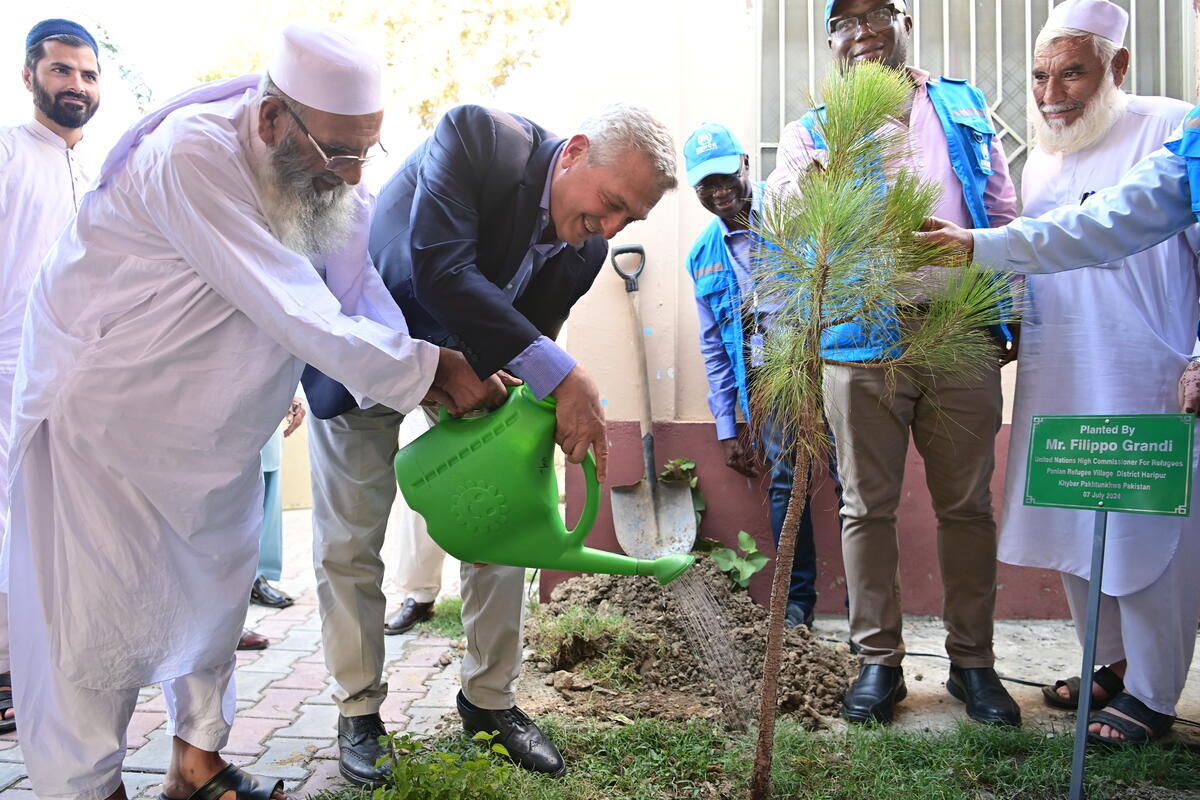UNHCR concerned about conflict-driven displacement in southern Afghanistan
UNHCR concerned about conflict-driven displacement in southern Afghanistan
The UN refugee agency is concerned about the recent displacement of Afghans due to the ongoing conflict in Afghanistan's southern provinces of Helmand and Kandahar. Despite limited access for security reasons, we have been working in past weeks with the Afghan government, UNAMA and other UN agencies to help nearly 5,000 families in Helmand province. In February 2007, the governor of Helmand province in southern Afghanistan approached the UN to assist 3,200 families from Kajaki district, where intense fighting had been reported. This followed another request in early February to assist some 1,600 battle-affected families from Musa Qala district.
WFP, UNICEF and UNHCR provided food and relief items: tents, plastic sheets, blankets, hurricane lanterns, soap, family kits, warm clothes to the group from Musa Qala, and are trying to reach out to the group from Kajaki. All actors are working together to create a more effective mechanism to find out the exact number of people displaced by the ongoing conflict in the south and the amount of assistance they need. Under the current security situation, access by UN agencies and our partners remains limited.
Last summer, the government estimated that 15,000 families were displaced by intense fighting in the two districts of Panjwai and Zhari in Kandahar province. They settled mainly in and around Kandahar city. Recent reports suggest that most of them have since returned to their home areas. In support of the government's Disaster Management Committee (DMC) and the Department of Rural Rehabilitation (DRRD) the UN, IOM, and other aid agencies provided food and relief items to 2,000 of the most vulnerable IDP families.
Insecurity and lack of access in the south are also affecting UNHCR's efforts to assist Afghans who had been displaced by previous conflicts and drought before 2002. It is estimated that of this group of approximately 130,000 internally displaced people (IDPs), the majority (112,000) are in the south. Of the remaining numbers, 3,800 are in the north, 12,200 in the west and 3,600 in the central regions. Access to health and other basic services have been drastically reduced since the beginning of the insurgency in the south.
Since 2002, over half a million IDPs have received UNHCR assistance to return home while another 450,000 have gone back on their own. This year will be the last year of assisted IDP returns. UNHCR plans to help some 2,500 families (15,000 individuals) to return to their home areas. As part of its overall approach to solutions, UNHCR is currently discussing with the authorities in Kandahar and elsewhere in the country how those IDPs who may have not returned by the end of 2007 can be integrated where they are.









